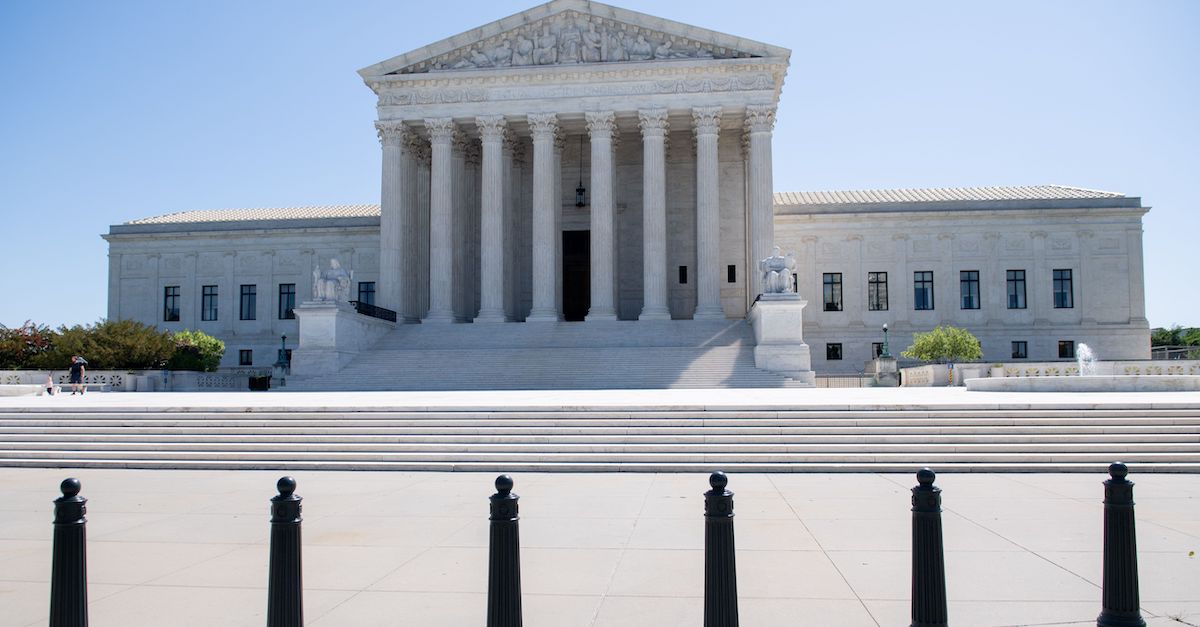
The U.S. Supreme Court on Friday rejected a request from the Texas Democratic Party to expand access to mail-in voting ballots to all of the state’s eligible voters. Republicans in the state government have repeatedly refused to increase access to mail-in ballots — which can currently only be obtained by persons who are out of state, are over age 65, or have disabilities — echoing the Trump administration’s unfounded and debunked conspiracy theory that voting via mail leads to widespread fraud.
Justice Samuel Alito issued the court’s order. Justice Sonia Sotomayor wrote separately to say she agreed with the decision to reject the application at this stage in the litigation but hoped the appellate court would “consider the merits of the legal issues in this case well in advance of the November election.”
The Supreme Court’s decision not to hear the case landed on the same day that Gov. Greg Abbott, a Republican, announced an executive order closing all bars in the state and mandating that businesses in the state operate at no more than 50 percent of maximum capacity. Those moves came as the state’s positive testing rate for the novel virus surged to nearly 12 percent.
The state’s Democratic Party filed a legal challenge to the mail-in voting restrictions, alleging that they constituted unlawful age discrimination in violation of the 26th Amendment to the U.S. Constitution. That amendment states that “[t]he right of citizens of the United States, who are eighteen years of age or older, to vote shall not be denied or abridged by the United States or by any State on account of age.”
Democrats had also argued that that the fear of contracting an illness in the midst of a global pandemic should be considered a disability under the current law, as it could reasonably be expected to prevent citizens from exercising their right to vote.
A federal district court in May ruled in favor of the Democrats, issuing a preliminary injunction allowing all Texans to vote by mail if they fear contracting the novel coronavirus. However, a three-judge panel on the U.S. Court of Appeals for the 5th Circuit reversed the ruling, reasoning that the parameters for voting, even during a pandemic, were up to state governments and not within the purview of the court’s authority.
“We are disappointed that the Supreme Court did not weigh in now and provide needed relief and clarity for voters ahead of the primary runoff,” Texas Democratic Party Chairperson Gilberto Hinojosa said in a statement Friday afternoon.
See the SCOTUS order below:
TX Scotus by Law&Crime on Scribd
[image via SAUL LOEB/AFP via Getty Images]